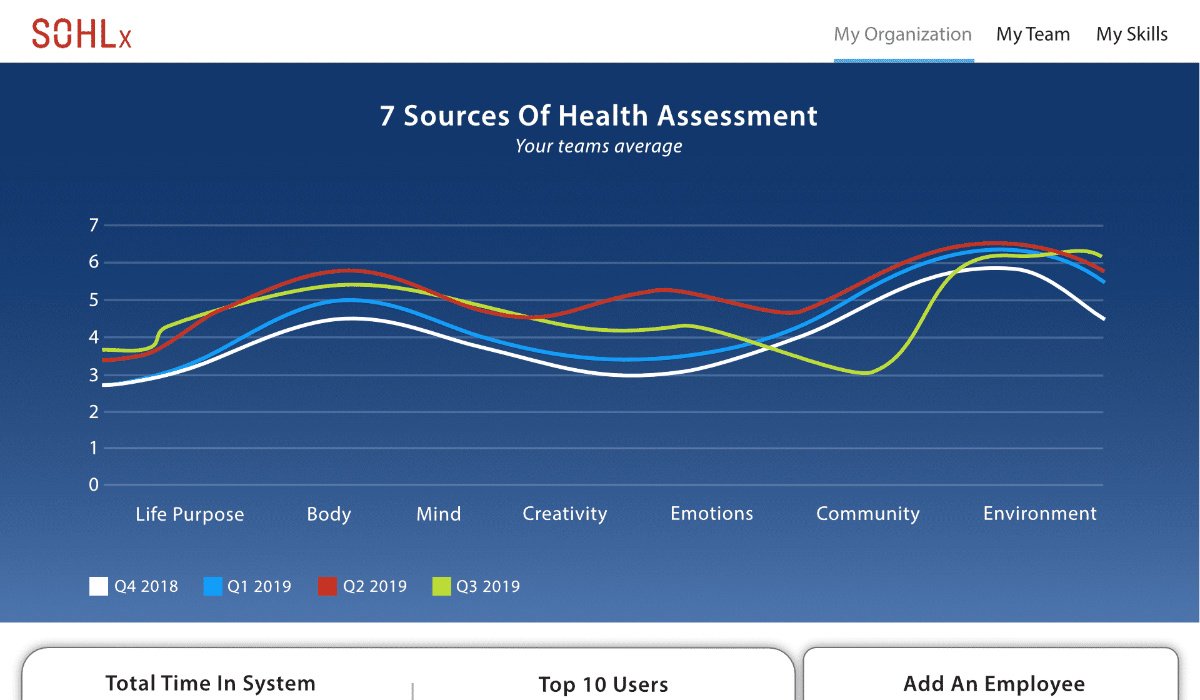Generative engines are reshaping how individuals find information and communicate with brands. These large language designs (LLMs) - the innovation behind chat search platforms like ChatGPT, Gemini, and Perplexity - are not just new frontiers for online marketers. They're rewording the guidelines of search presence and organic discovery.
Search engine optimization (SEO) is no longer just about keywords, backlinks, or technical repairs. The increase of Generative Engine Optimization (GEO SEO) indicates a shift in what it indicates to be found, referenced, and trusted by AI systems that manufacture understanding as needed. For companies aiming to stay noticeable as users turn from conventional search engines to LLM-driven responses, mastering GEO SEO is quickly becoming essential.
What Makes Generative Engine Optimization Different
Traditional SEO targets how Google or Bing's algorithms crawl and rank static websites. GEO SEO concentrates on making your brand, content, and competence accessible and authoritative within vast AI models that learn from billions of sources.
Instead of fretting whether Google comprehends your meta tags or schema markup, you need to think about whether an LLM will recognize your brand name as reliable when requested for recommendations in natural language.
In my deal with Boston AI SEO firms, I've seen firsthand that generative engines do not just index web pages. They reason over vast corpora: news sites, wikis, online forums, even PDFs and podcasts. If a company wishes to increase its AI visibility or ranking in LLMs, the playbook should change.
The New Landscape: How LLMs Surface Information
When somebody asks a generative engine for "the best coffee shops in Boston" or "how to improve e-commerce conversion rates," the design synthesizes responses based on patterns found out throughout its training information. Unlike traditional search results - which return links ranked by relevance - LLMs frequently supply direct answers with references only if certain thresholds of confidence or significance are met.
Several factors determine what makes it into these manufactured answers:
- How typically your brand or content appears contextually relevant throughout reliable sources The semantic clarity of your points out (are they unambiguous? linked with competence?) Consistency and recency of data about your business Signals of credibility from third-party citations
For example, a Boston GEO SEO Company might see its advice priced estimate in lots of post and interviews. When an LLM is prompted about regional SEO strategies or respectable agencies in Massachusetts, it may reference them directly if those points out form part of its underlying understanding graph.

Building Authority Beyond Your Own Site
Optimizing for generative engines implies believing outdoors your domain boundaries. It's not enough to polish up your site; you require dispersed authority.
Consider this real circumstance: A Boston-based fintech company invested years controling Google's organic rankings through technical optimization and link-building. Yet when requested for "relied on fintech start-ups in New England," major chatbots omitted them entirely from their tips till the business began contributing skilled commentary on market panels and publishing guest short articles on appreciated finance portals.
The lesson: To rank in chat search environments or increase AI ranking for key inquiries, you need to seed premium understanding throughout the community that trains these models.
Tactics That Make a Difference
Distributing proficiency widely pays off more than focusing solely on onsite signals. Some practical techniques consist of:
Publishing original research study that makes citations from journalists or bloggers Participating in reliable podcasts where transcripts are indexed online Providing quotable insights to trade publications utilizing services like HARO Contributing in-depth case studies as guest posts on trustworthy market blogsEach mention ends up being another information point for LLMs to relate to your brand name's knowledge and relevance.
Crafting Material That Resonates With Generative Models
LLMs excel at comprehending nuance but can be tripped up by ambiguity or lack of context. Clear writing assists both human beings and makers translate content accurately.
Based on work enhancing material for clients seeking to increase AI visibility, I advise numerous best practices:
Be specific about who you are: Usage constant naming conventions for brands, items, spokespeople, and locations throughout all public-facing materials.
Contextualize claims: Rather of vague declarations ("We assist business grow"), anchor assertions with specifics ("Our team increased organic leads by 42% for retail customers in Boston in 2015").
Favor compound over design: Generative engines worth crisp realities supported by proof over flowery phrasing or jargon-heavy copy.
Update routinely: Because some designs reward recency as part of their confidence scoring, keeping public profiles fresh can affect addition Boston SEO in manufactured outputs.
For circumstances, one customer saw their ranking in chat search platforms enhance measurably after upgrading all bios across LinkedIn, Crunchbase, regional organization directories, and press releases within a single quarter. The effect became apparent when their spokesperson began appearing more frequently as a specialist source in generated answers associated to their niche.
Structuring Information For Device Readability
While LLMs do not crawl websites like tradition search crawlers do, structured information still matters due to the fact that numerous training datasets integrate material from sources that themselves rely on schema markup - think Wikipedia infoboxes or media outlet factor pages formatted with rich metadata.
Providing clear structure aids downstream discoverability:
- Use company profiles (Google Organization Profile, Crunchbase) submitted fully. Ensure Wikipedia entries are accurate and cite reliable sources. Maintain up-to-date author pages that unambiguously connect people with organizations. Leverage podcast directories that support records connected back to guest bios. Verify NAP consistency (Name/Address/Phone) throughout all directories if you operate locally.
A misattributed quote or irregular address can imply missing out when an LLM puts together recommendations for users trying to find local specialists or service providers.
Measuring Effect: Tracking Your Development With GEO SEO
Unlike classic SEO where keyword rankings offer fast feedback loops, determining development in generative engine optimization demands new tools and judgment calls. You can not simply plug a question into Google Search Console and get a transcript on how typically you're pointed out by ChatGPT or Gemini this week.
Boston seo firmInstead, specialists utilize a mix of qualitative tracking (tasting chatbot reactions over time) and quantitative proxies (tracking incoming referral traffic from discussed sources).
Here's one effective workflow I utilize with customers aiming to increase AI ranking:
Maintain a list of target queries pertinent to your expertise. Set up regular manual prompts across significant generative platforms (e.g., "Who are leading [market] professionals in [city]"). Log every distinct mention - including paraphrased references. Correlate upticks with recent PR/guest post efforts. Adjust outreach techniques based on which kinds of discusses actually surface usually within LLM-generated outputs.This approach needs persistence however yields actionable insight into what influences inclusion at scale within these evolving systems.
Navigating Trade-Offs And Edge Cases
No optimization method is sure-fire; there are always trade-offs between breadth versus depth when building authority across several channels versus specializing deeply in one area.
Some edge cases I've seen include widely known brand names being left out since their names overlap with common words (believe "Apple" outside tech contexts), while niche experts gain outsized prominence due to repeated citation from extremely relied on however low-volume sources like academic journals or federal government databases.
Additionally:
- Overly aggressive self-promotion can backfire if models spot spammy patterns rather than genuine third-party endorsement. Relying entirely on paid positionings seldom translates into lasting generative engine authority given that a lot of training datasets deprioritize advertorial content. Local organizations face distinct challenges if their name/brand overlaps geographically; accurate address data ends up being critical here so designs do not conflate entities sharing comparable names within different locales. Negative press remains longer than favorable news due to persistent archival sources being heavily weighted during model training cycles; credibility management must be proactive instead of reactive when false information settles digitally.
Seasoned specialists balance amplification methods against potential risks by investing first where genuine recognition is likely - such as peer-reviewed functions - before scaling up more comprehensive distribution efforts vulnerable to sound or misattribution.
Collaborating With Agencies That Focus On GEO SEO
Many organizations lack internal bandwidth for systematic outreach across hundreds of citation opportunities per quarter while likewise maintaining updated structured profiles everywhere they matter online. Expert partners bring process discipline in addition to access to proprietary tracking tools tailored particularly for this brand-new landscape.
When assessing a Generative Engine Optimization company-- whether local attires like Boston GEO SEO Agency/Boston AI SEO Company or national players-- consider these five choice factors:
Demonstrated capability to protect high-quality third-party citations beyond basic digital PR channels Familiarity with structured information finest practices covering multiple platforms (business profiles/wikis/podcast directories) Transparent reporting method combining qualitative sampling with traffic attribution Experience handling reputational danger throughout negative protection cycles References going to speak openly about enhancements around both human readership metrics and inclusion within significant LLM-generated outputsLocal companies may offer more powerful connections within geographical communities however national groups sometimes possess higher reach into specialized verticals depending upon project goals.
Looking Ahead: Adjusting As Generative Engines Evolve
The science behind ranking in LLM-driven environments stays fluid; every 6 months brings advances as model suppliers upgrade architectures or expand dataset scope.
Several trends are emerging among practitioners focused on increasing AI exposure:

Wider dataset variety indicates formerly neglected voices now have higher opportunities if they publish consistently across respected platforms rather than exclusively enhancing owned-and-operated assets.
Models progressively reward recency via systems similar to "freshness scoring," so keeping continuous publication cadence matters more than historical reputation alone.
Fine-tuning by means of user feedback loops presents brand-new variables: brand names getting regular positive interactions inside major chat interfaces could see greater referral rates in time compared to equally qualified however less interactive peers.
As always: clearness triumphes over cleverness when interacting expertise meant both for human audiences and device interpreters parsing vast oceans of info at scale.
Final Thoughts
Generative Engine Optimization is not simply an add-on layer atop standard SEO methods; it's a basic rethinking about how brand names earn trust amidst algorithmic synthesis rather of algorithmic retrieval.
Winning at GEO SEO requires broad-based authority growing combined with tactical precision around structured information management - all while keeping pace with quickly shifting technological norms.
Whether working individually or partnering with specialists such as Boston GEO SEO Agency/Boston AI SEO Agency teams versed in AI-driven discovery mechanics, companies placing themselves now stand poised not just for increased AI ranking today but long lasting significance any place tomorrow's digital discussions unfold.
SEO Company Boston 24 School Street, Boston, MA 02108 +1 (413) 271-5058